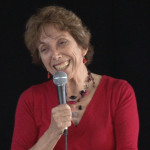My reading
Haftarah Parashat Va-yeishev
Amos 2:6 - 3:8
2:6 כֹּ֚ה אָמַ֣ר יְהוָ֔ה עַל־שְׁלֹשָׁה֙ פִּשְׁעֵ֣י יִשְׂרָאֵ֔ל וְעַל־אַרְבָּעָ֖ה לֹ֣א אֲשִׁיבֶ֑נּוּ עַל־מִכְרָ֤ם בַּכֶּ֙סֶף֙ צַדִּ֔יק וְאֶבְי֖וֹן בַּעֲב֥וּר נַעֲלָֽיִם׃
2:7 הַשֹּׁאֲפִ֤ים עַל־עֲפַר־אֶ֙רֶץ֙ בְּרֹ֣אשׁ דַּלִּ֔ים וְדֶ֥רֶךְ עֲנָוִ֖ים יַטּ֑וּ וְאִ֣ישׁ וְאָבִ֗יו יֵֽלְכוּ֙ אֶל־הַֽנַּעֲרָ֔ה לְמַ֥עַן חַלֵּ֖ל אֶת־שֵׁ֥ם קָדְשִֽׁי׃
2:8 וְעַל־בְּגָדִ֤ים חֲבֻלִים֙ יַטּ֔וּ אֵ֖צֶל כָּל־מִזְבֵּ֑חַ וְיֵ֤ין עֲנוּשִׁים֙ יִשְׁתּ֔וּ בֵּ֖ית אֱלֹהֵיהֶֽם׃
2:9 וְאָ֨נֹכִ֜י הִשְׁמַ֤דְתִּי אֶת־הָֽאֱמֹרִי֙ מִפְּנֵיהֶ֔ם אֲשֶׁ֨ר כְּגֹ֤בַהּ אֲרָזִים֙ גָּבְה֔וֹ וְחָסֹ֥ן ה֖וּא כָּֽאַלּוֹנִ֑ים וָאַשְׁמִ֤יד פִּרְיוֹ֙ מִמַּ֔עַל וְשָׁרָשָׁ֖יו מִתָּֽחַת׃
2:10 וְאָנֹכִ֛י הֶעֱלֵ֥יתִי אֶתְכֶ֖ם מֵאֶ֣רֶץ מִצְרָ֑יִם וָאוֹלֵ֨ךְ אֶתְכֶ֤ם בַּמִּדְבָּר֙ אַרְבָּעִ֣ים שָׁנָ֔ה לָרֶ֖שֶׁת אֶת־אֶ֥רֶץ הָאֱמֹרִֽי׃
2:11 וָאָקִ֤ים מִבְּנֵיכֶם֙ לִנְבִיאִ֔ים וּמִבַּחוּרֵיכֶ֖ם לִנְזִרִ֑ים הַאַ֥ף אֵֽין־זֹ֛את בְּנֵ֥י יִשְׂרָאֵ֖ל נְאֻם־יְהוָֽה׃
2:12 וַתַּשְׁק֥וּ אֶת־הַנְּזִרִ֖ים יָ֑יִן וְעַל־הַנְּבִיאִים֙ צִוִּיתֶ֣ם לֵאמֹ֔ר לֹ֖א תִּנָּבְאֽוּ׃
2:13 הִנֵּ֛ה אָנֹכִ֥י מֵעִ֖יק תַּחְתֵּיכֶ֑ם כַּאֲשֶׁ֤ר תָּעִיק֙ הָעֲגָלָ֔ה הַֽמְלֵאָ֥ה לָ֖הּ עָמִֽיר׃
2:14 וְאָבַ֤ד מָנוֹס֙ מִקָּ֔ל וְחָזָ֖ק לֹא־יְאַמֵּ֣ץ כֹּח֑וֹ וְגִבּ֖וֹר לֹא־יְמַלֵּ֥ט נַפְשֽׁוֹ׃
2:15 וְתֹפֵ֤שׂ הַקֶּ֙שֶׁת֙ לֹ֣א יַעֲמֹ֔ד וְקַ֥ל בְּרַגְלָ֖יו לֹ֣א יְמַלֵּ֑ט וְרֹכֵ֣ב הַסּ֔וּס לֹ֥א יְמַלֵּ֖ט נַפְשֽׁוֹ׃
2:16 וְאַמִּ֥יץ לִבּ֖וֹ בַּגִּבּוֹרִ֑ים עָר֛וֹם יָנ֥וּס בַּיּוֹם־הַה֖וּא נְאֻם־יְהוָֽה׃
3:1 שִׁמְע֞וּ אֶת־הַדָּבָ֣ר הַזֶּ֗ה אֲשֶׁ֨ר דִּבֶּ֧ר יְהוָ֛ה עֲלֵיכֶ֖ם בְּנֵ֣י יִשְׂרָאֵ֑ל עַ֚ל כָּל־הַמִּשְׁפָּחָ֔ה אֲשֶׁ֧ר הֶעֱלֵ֛יתִי מֵאֶ֥רֶץ מִצְרַ֖יִם לֵאמֹֽר׃
3:2 רַ֚ק אֶתְכֶ֣ם יָדַ֔עְתִּי מִכֹּ֖ל מִשְׁפְּח֣וֹת הָאֲדָמָ֑ה עַל־כֵּן֙ אֶפְקֹ֣ד עֲלֵיכֶ֔ם אֵ֖ת כָּל־עֲוֹנֹֽתֵיכֶֽם׃
3:3 הֲיֵלְכ֥וּ שְׁנַ֖יִם יַחְדָּ֑ו בִּלְתִּ֖י אִם־נוֹעָֽדוּ׃
3:4 הֲיִשְׁאַ֤ג אַרְיֵה֙ בַּיַּ֔עַר וְטֶ֖רֶף אֵ֣ין ל֑וֹ הֲיִתֵּ֨ן כְּפִ֤יר קוֹלוֹ֙ מִמְּעֹ֣נָת֔וֹ בִּלְתִּ֖י אִם־לָכָֽד׃
3:5 הֲתִפֹּ֤ל צִפּוֹר֙ עַל־פַּ֣ח הָאָ֔רֶץ וּמוֹקֵ֖שׁ אֵ֣ין לָ֑הּ הֲיַֽעֲלֶה־פַּח֙ מִן־הָ֣אֲדָמָ֔ה וְלָכ֖וֹד לֹ֥א יִלְכּֽוֹד׃
3:6 אִם־יִתָּקַ֤ע שׁוֹפָר֙ בְּעִ֔יר וְעָ֖ם לֹ֣א יֶחֱרָ֑דוּ אִם־תִּהְיֶ֤ה רָעָה֙ בְּעִ֔יר וַיהוָ֖ה לֹ֥א עָשָֽׂה׃
3:7 כִּ֣י לֹ֧א יַעֲשֶׂ֛ה אֲדֹנָ֥י יְהוִ֖ה דָּבָ֑ר כִּ֚י אִם־גָּלָ֣ה סוֹד֔וֹ אֶל־עֲבָדָ֖יו הַנְּבִיאִֽים׃
3:8 אַרְיֵ֥ה שָׁאָ֖ג מִ֣י לֹ֣א יִירָ֑א אֲדֹנָ֤י יְהוִה֙ דִּבֶּ֔ר מִ֖י לֹ֥א יִנָּבֵֽא׃










